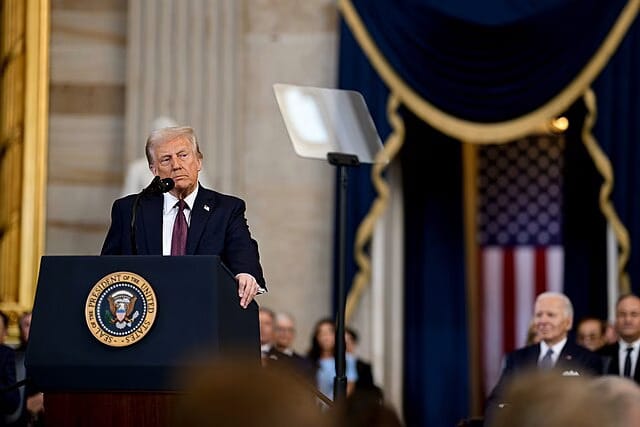On February 5, 2025, President Donald Trump signed an executive order prohibiting transgender women from participating in female sports across schools and institutions receiving federal funding. This move, which Trump asserts will “defend the proud tradition of female athletes,” has ignited widespread debate and legal challenges.

The executive order mandates that any school allowing transgender women to compete in women’s sports risks losing federal funding. It defines sex strictly based on biological characteristics at birth, a perspective that has drawn criticism from LGBTQ+ advocacy groups and medical professionals who argue that gender identity is more complex.
In a surprising turn, Caitlyn Jenner, a prominent transgender figure and former Olympic athlete, publicly praised Trump’s executive order. Jenner’s endorsement has stunned many, given her transition and advocacy for transgender rights. Her support highlights the nuanced perspectives within the transgender community regarding sports participation.

Critics argue that the executive order discriminates against transgender individuals and undermines inclusivity in sports. Legal experts anticipate challenges to the order, citing potential violations of civil rights protections. The debate underscores the ongoing tension between efforts to maintain fairness in women’s sports and the rights of transgender athletes.

As the nation grapples with this contentious issue, the executive order’s long-term implications for education, sports, and civil rights remain uncertain. The conversation continues to evolve, reflecting deep societal divisions and the complex nature of gender identity in the context of competitive athletics.
